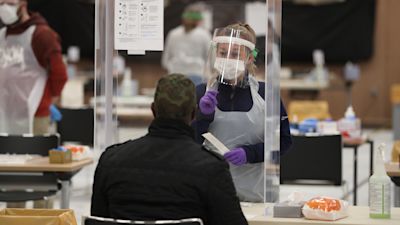20,000 a day ignoring Covid Test and Trace instructions to self-isolate

About 20,000 people per day – possibly more – are not isolating when they should be, it has emerged.
Baroness Dido Harding, head of NHS Test and Trace, said that research has shown that between 40% and 20% of people contacted by the programme are not fully self-isolating after being instructed to do so.
Based on the rates of people contacted on a daily basis, an optimistic estimate suggests that 20,000 are not fully following self isolation instructions, MPs on the House of Commons Science and Technology Committee heard.
Covid: Boris Johnson to lead coronavirus press conference following 'encouraging' vaccine study
Covid: 1 in 7 in England 'have had coronavirus' with cases highest in London
Baroness Harding, interim executive chairwoman at the National Institute for Health Protection, said there there could be multiple reasons behind people ignoring the rules.
These include: not understanding what they should and shouldn’t do, the practicalities of self-isolating such as not having enough food in the fridge, or needing medicine, some can not afford it and feel they need to go to work, and the mental health impacts.
Taking last week’s total number of cases and contacts, around 700,000 – which equated to 100,000 a day – she concluded that 20,000 a day are not isolating.
Responding to questions from former health secretary Jeremy Hunt, she said: “Could I add a slight complexity to your calculation which actually might well make your number go up a bit, which is that’s the proportion that we know about.”
Baroness Harding said her biggest concern is the people who feel ill but do not come forward for testing.
Mr Hunt said: “Thousands of people a day is enough to restart the pandemic.”
Meanwhile, Baroness Harding said that there were 2,500 consultants working on the project employed in roles surrounding “technical operational process and system design”.
They are paid an average of £1,100 a day, MPs heard.
Going forward it is hoped that many of these roles will be transferred to civil service roles.
She has said the system is on track to reduce the R number in high prevalence areas by between 0.6 and 0.8 by the end of March.
She told MPs on the House of Commons Science and Technology Committee: “But with a disease with an unconstrained R in March of over 3, it is impossible for Test and Trace to single-handedly fight the disease.
“It is always going to be one element of our fight against Covid, not the silver bullet.”
How to survive lockdown hell - listen to our latest coronavirus podcast: